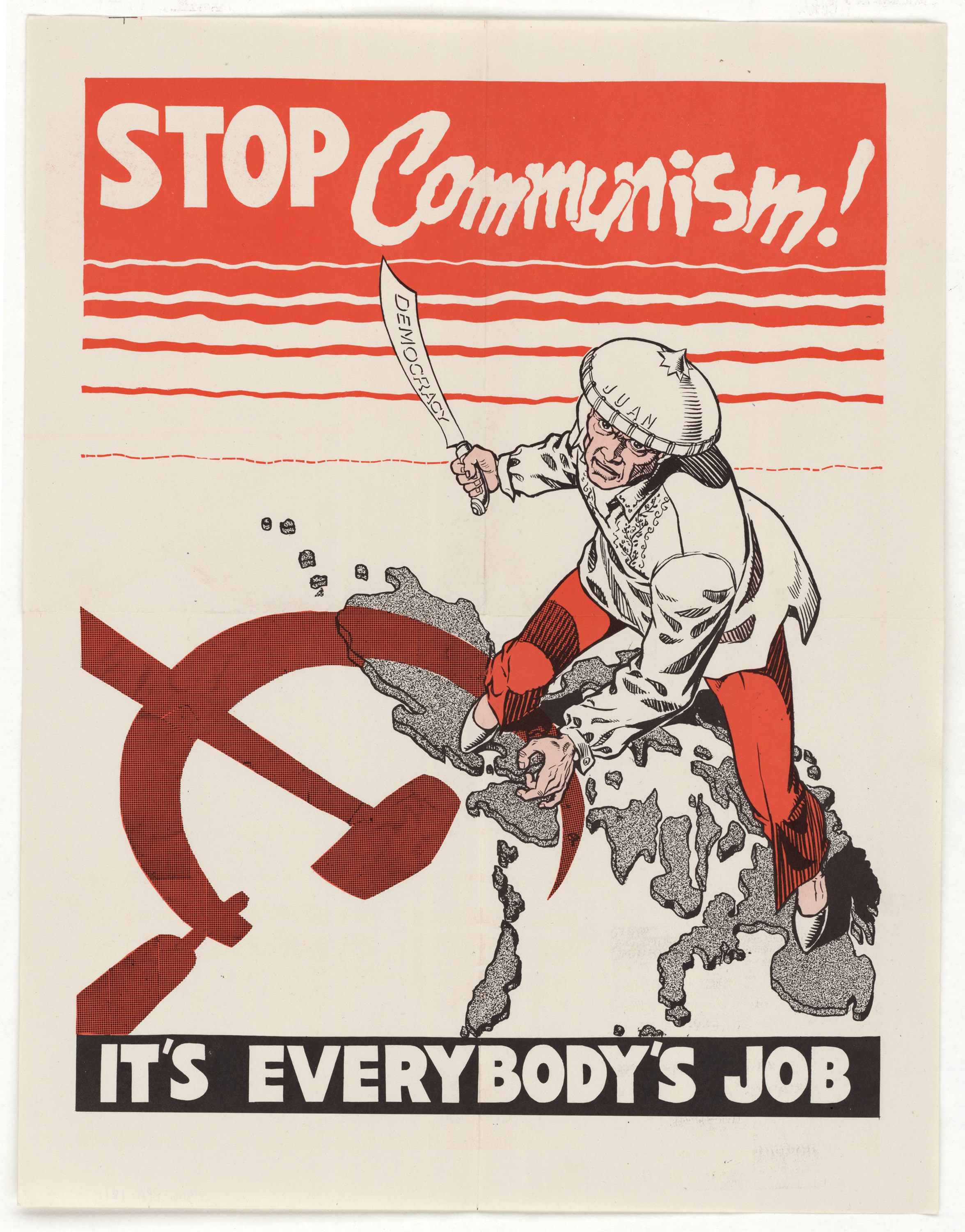Anti-communism is a reactionary political ideology which opposes communism, usually promoted by capitalist propagandists who recognize communism as a threat to their power.

While organized anti-communism emerged in response to the Russian Revolution of 1917, bourgeois repression of working class movements was already enforced before that, notably in the repression against the Paris Commune.[1]
In the first paragraph of his 1848 Manifesto of the communist party, Karl Marx references anti-communism already existent in his time: “All the powers of old Europe have entered into a holy alliance to exorcise [the spectre of communism]: Pope and Tsar, Metternich and Guizot, French Radicals and German police-spies.”[2]
History
Origins of anti-communism
Bourgeois repression of communism can be traced as early as 1796,[1] when the newly installed French bourgeois government ordered the arrest and execution of the utopian socialist François-Noël Babeuf, in a crackdown against the "Conspiracy of the Equals", a group of Jacobin revolutionaries who advocated for the abolition of private property.
Auguste Blanqui, another utopian socialist, was frequently persecuted and arrested during his lifetime.[1]
References
- ↑ 1.0 1.1 1.2 Giovannini, Fabio (2004). Breve storia dell'anticomunismo [Brief history of anti-communism]. Roma: Datanews Editrice. Spanish translation available in Library Genesis
- ↑ Karl Marx. Manifesto of the communist party. Library link